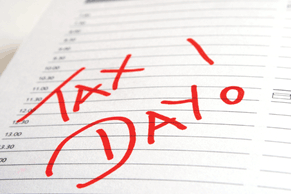More help with self-assessment tax bills
If you haven’t paid what you owe within 30 days of the filing date of your self-assessment return for that year, you’ll be charged a penalty. The good news is that HMRC has relaxed this rule for the 2019/20 tax year. What’s the full story?

HMRC has today (19 February) announced that self-assessment taxpayers won’t be charged the automatic 5% late payment penalty if they pay what they owe for 2019/20 or set up a payment plan by 1 April 2021.
Normally, a 5% late payment penalty is charged on any unpaid tax that is still outstanding on 3 March following the end of the tax year. But this year, because of the impact of the pandemic, HMRC is giving taxpayers more time to pay or set up a payment plan.
Note that HMRC will stick to the normal rule of charging interest at 2.6% per annum for all self-assessment bills not paid on time.
You can pay your tax bill or set up a monthly payment plan here. You need to do this by midnight on 1 April to prevent being charged a late payment penalty.
Related Topics
-
5 April deadline approaching for key tax relief claims
With the end of the 2025/26 tax year now less than seven weeks away, business owners and company directors should remember that several valuable reliefs and elections must be made before 5 April. Which opportunities are about to close?
-
HMRC reminds employers about payrolling benefits deadlines
HMRC is reminding employers of key dates and preparations ahead of the transition to real-time payrolling of benefits in kind (BiKs). With an important voluntary registration deadline approaching, what do payroll teams need to know?
-
Why do frozen mileage rates affect VAT?
Your business pays a fixed mileage allowance to staff who use their private cars for business travel. The rates published by HMRC have been frozen since 2011 but is this relevant to determine how much input tax you can claim on the payments?